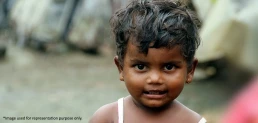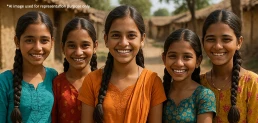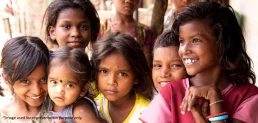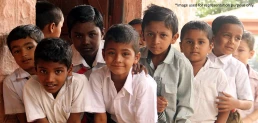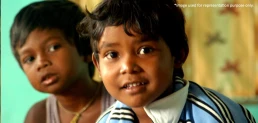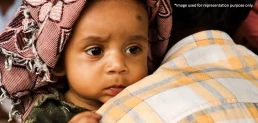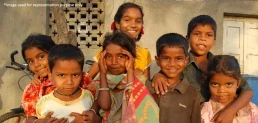Every newborn deserves a healthy start to life, and vaccines play a vital role in making that possible. Immunization of infants is the most effective, science-backed way to protect them from life-threatening diseases in their early, most vulnerable months. Yet despite its proven impact, millions of babies still miss out due to inconsistent implementation, limited awareness, and vaccine hesitancy, especially in countries like India.
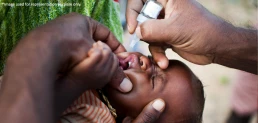

In this blog, let’s understand how immunization in infants works, why it’s so crucial for their survival, and what it will take to close the awareness gap and build community trust in vaccines.
What is immunization and how does it work?
Infant immunization is the process of giving vaccines to babies to protect them from serious diseases like measles, polio, and tuberculosis. These vaccines help build the baby’s natural defences (immunity) by teaching the body how to fight harmful germs. It keeps babies healthy, prevents illness, and saves lives, especially in their first few years of life.
Also Read: Causes of Neonatal Mortality in India
Importance of vaccination for infant survival
Infants have very limited immunity, which isn’t enough to protect them from the many serious diseases they’re exposed to. Hence, vaccination isn’t just a precaution, but it’s a vital intervention to ensure their healthy living.
- Protection against life threatening diseases
Vaccines protect infants from deadly illnesses such as polio, measles, and tetanus, which can cause severe complications like paralysis or even breathing difficulties in newborns and adults.
- Safeguards vulnerable lives around us
Vaccination not only protects the child receiving it but also helps prevent the spread of disease by shielding those who are too young or medically unable to be immunized.
- Prevents long-term struggles
Skipping vaccination can lead to lifelong health issues and hefty medical bills down the line. On the other hand, timely vaccination is a smart investment of effort where no cost is involved, if one avails them at the government healthcare centers.
- Eliminating diseases for future generations
When a community consistently follows immunization, it can wipe out life-threatening diseases that once posed serious risks. For instance, small pox; it no longer needs a vaccine because it’s been eradicated worldwide.
Also Read: Role of Nutrition
Key vaccines recommended for infants
Newborns and infants have unique immune responses that differ from adults and animals. Hence, let’s go through their age-specific vaccinations to ensure their well-being.
- Bacillus Calmette-Guerin (BCG)
Given at birth, this single-dose vaccine protects newborns from tuberculosis. - Oral Polio Vaccine (OPV)
OPV is administered at birth, then at 6, 10, and 14 weeks. It protects children under 5 from poliovirus, which can cause paralysis. - Hepatitis B Vaccine
This three-dose vaccine starts within 24 hours of birth, followed by doses between 1–2 months and again at 6–18 months. It protects the liver from hepatitis B virus. - Pentavalent Vaccine
Given at 6, 10, and 14 weeks, it protects against five diseases: diphtheria, pertussis, tetanus, hepatitis B, and Hib. - Rotavirus Vaccine (RVV)
Administered in three doses at 6, 10, and 14 weeks, it guards against rotavirus, this is a major cause of severe diarrhea in infants. - Pneumococcal Conjugate Vaccine (PCV)
PCV is given at 2, 4, and 6 months of age to protect against pneumonia, meningitis, and septicemia.
Also Read: Prioritizing Health and Nutrition for At-Risk Children in India
Addressing vaccine hesitancy among parents
Even in high-income countries like the U.S., 1 in 4 parents choose not to vaccinate their child, according to the U.S. National Library of Medicine. In India, it’s not always about choice, people often hesitate because of low awareness, limited access to healthcare, and the myths that still surround vaccine side effects.
Building trust through healthcare centres
India has a widespread network of Anganwadi Centers (AWCs), Anganwadi Workers (AWWs), and Auxiliary Nurse Midwives (ANMs) to support vaccination efforts. Yet, a significant gap remains in how communities access these services. When frontline workers and doctors engage more closely with people, it helps build trust. By sharing medical information in simple terms and real stories of hope from within the community, often with support from NGOs like CRY America, they make healthcare feel more accessible and relatable.
Capitalizing community stakeholders
Communities don’t easily trust outsiders who enter their space and start pointing out problems. That’s where local leaders like the Sarpanch, religious heads, and Panchayat members play a crucial role. When these leaders are made aware of the importance of vaccination, they become spokespersons and strong advocates for children’s well-being. And because the community trusts them, their message is more likely to be heard and accepted.
Mobilizing complex medical information
People are often more willing to deal with common illnesses than to crack complicated medical jargon. Hence, it’s important to simplify the language used when communicating with underserved communities. When doctors with support from NGOs like CRY America break down complex medical facts into simple, relatable messages; using local languages, illustrations, or culturally familiar analogies, the benefits of vaccination become clearer. And that’s when communities begin to trust the information and take it to heart.
Addressing Societal Fears and Myths
Myths and superstitions often stem from limited awareness passed down through generations. This cycle can only be broken when communities receive information from sources they trust. This credibility is a slow cooked process that ripples when the community stakeholders speak the same language and share consistent messages, whether it’s at the local healthcare center, in a Panchayat Sabha, or through women’s peer groups or mother’s peer groups supported by NGOs like CRY America. As trusted members of the community, these groups advocate for vaccination drives and help dispel myths from within.
Making vaccination accessible
All these efforts can fall short if, despite being informed, people are unable to access vaccines whether due to stockouts at healthcare centers, a shortage of trained nurses, or difficult terrains and long distances that make travel nearly impossible. To tackle these challenges, NGOs like CRY America works closely with local administrations to deploy mobile vaccination units in challenging areas and to support the training of Anganwadi Workers (AWWs) and Auxiliary Nurse Midwives (ANMs).
CRY America’s role in supporting children’s vaccination
Parvatiben, a young mother from an underserved community, almost gave up on immunizing her newborn after he developed swelling following a BCG vaccine, a common and usually mild reaction. Without proper information, such an experience can quickly turn into fear. That’s where CRY America stepped in to bridge the gap between awareness and action through ground-level engagement.
Through CRY’s supported Mother’s Groups, interactive awareness sessions, and one-on-one counseling, the Project GSS team helped her understand the benefits of vaccination and what side effects are normal versus concerning. They accompanied her on visits to the local health clinic and reinforced the importance of completing the immunization schedule for infants, particularly the Pentavalent vaccine, which protects against five life-threatening diseases.
Parvatiben once again found trust in the process, and ensured her child received all three doses on time. Today, she’s not just a mother who made an informed decision, but also a community advocate encouraging other mothers to overcome fears and embrace timely infant immunization.
Conclusion
Vaccination of infants is more than personal protection as it safeguards communities and secures a healthier future for generations. While India’s public health efforts have made considerable progress, the journey is still far from over, and with your continued support can help bridge this gap.
Donate to CRY America and ensure every child receives the protection they deserve because a healthy future begins with timely immunization today.
Recommended for you











